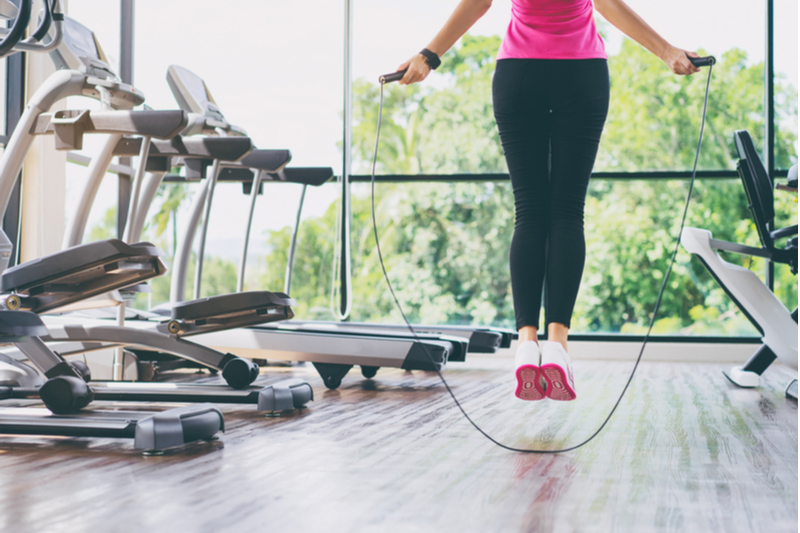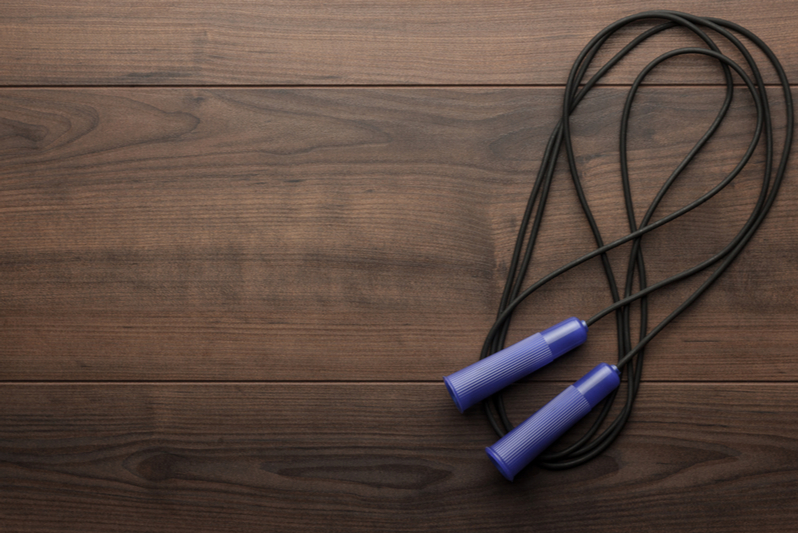You are mistaken if you think jumping rope is for children. Age is no bar when it comes to this jumping exercise.
What you need to know:
Why do we choose to jump?
Our #JumpForHealth challenge has been running for over five years. First launched in 2017, the campaign was developed for the dual purpose of improving our members’ health and an important charitable cause. For every 10,000 jumps we received, Aditya Birla Health Insurance donated a prosthetic leg to a person in need.
Benefits of skipping rope

Many athletes and trainers swear by jumping rope as an effective cardio exercise. This jumping exercise works your entire body. It tones your calves, tightens your core, and strengthens your legs, hips, shoulders, and arms. No other equipment is required except a rope. Skipping rope makes for a great home-workout exercise as it can take place within a limited spatial arrangement as well.

There are many benefits of skipping rope. Jumping rope is good for your heart health as it raises your heart rate and reduces the risk of heart attacks or strokes. It also improves your blood circulation and breathing, which enhances your lung capacity. When you jump rope on a daily basis, it improves your balance and coordination. When you skip rope, the right and left hemispheres of your brain synchronize and develop the ability to be alert, boost your memory, and enhance your concentration. This jumping exercise builds endurance, stamina, and helps you get rid of fatigue. Jumping rope can improve your bone density and sculpt your body. With varying degrees of intensity, this exercise releases endorphins and boosts your mood, further reducing stress and anxiety.
How to jump rope safely?

You will only yield adequate results when you jump rope consistently and shuffle between other workout routines with a balanced diet. We suggest that you invest in quality sports shoes that act as effective shock absorbers. Be wary of the surface type you jump rope on. Avoid hard surfaces like asphalt and concrete that leave little space for shock absorption. An even flooring with a wooden or rubber texture can be a viable alternative. In case you have limited options, then lower the intensity of workouts while skipping on a hard surface. If you are a beginner, then start slow and gain momentum gradually to avoid injuries. No exercise, even one as simplistic as skipping rope, should be done without warming up to elevate your blood flow and kick up your heart rate. Similarly, do not underestimate stretching before and after working out to tackle muscle tightness. Steer clear from this high intensity workout if you have heart-related issues or bone injuries.
Here is how to participate in #JumpForHealth:
Step 1: Shoot your jump video
Step 2: Upload on social media with #JumpForHealth and tag @abchealthinsurance
Step 3: Mention the number of jumps and nominate others to participate
Try these exercises to jump higher. Join us in our #JumpForHealth campaign and help us reach our target of donating 1000 prosthetic legs. For these exercises to make a difference, it is essential to do them consistently.
To get more information on mindfulness and nutrition-related topics, visit the Activ Living page.





 1800-270-7000
1800-270-7000










